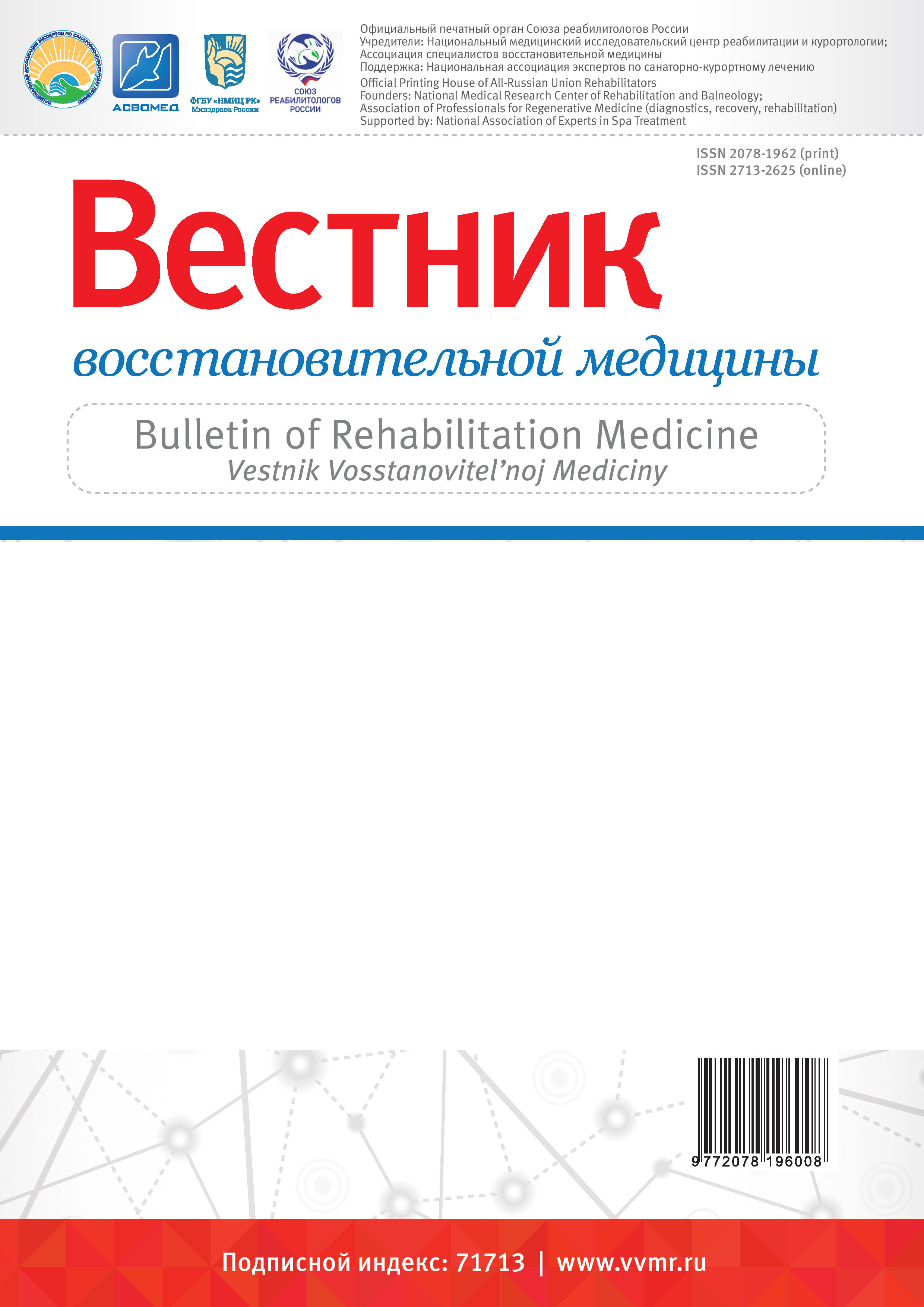Тест с шестиминутной ходьбой (ТШХ) является относительно простым и изученным методом оценки толерантности к физической нагрузке. Несмотря на широкое применение, до настоящего времени отсутствуют единообразные подходы к оценке результатов тестирования у больных ишемической болезнью сердца (ИБС). Цель. Представление научного обоснования и практических рекомендаций по использованию различных подходов к оценке и интерпретации результатов ТШХ у больных ИБС. Исследователями подчеркивается важность соблюдения протокола тестирования для обеспечения высокой точности и воспроизводимости результатов. Величина пройденной дистанции в ТШХ зависит от пола, возраста, антропометрических и эхокардиографических показателей. Выполнение нескольких тестов у одного и того же пациента не может быть рекомендовано в связи с возможным развитием «эффекта обучения» у пациента. Было показано прогностическое значение результатов ТШХ у больных с различной патологией. Величина пройденной дистанции в ТШХ ≤ 300 метров у больных с сердечной недостаточностью со сниженной фракцией выброса была ассоциирована с достоверным повышением риска смерти и сердечно-сосудистых событий, стабильные результаты ТШХ в течение одного года были сопряжены с более высокой выживаемостью больных. Использование ТШХ в оценке эффективности кардиореабилитации больных привело к формированию концепции «минимально клинически значимой разницы» (МКЗР). По данным литературы, МКЗР пройденной дистанции ТШХ у пациентов, перенесших острый коронарный синдром, составила 25 метров. В статье приведены данные собственных исследований, основные способы и примеры расчета изменений дистанции ТШХ. Полученные результаты свидетельствуют о том, что комплексный анализ и одновременное использование нескольких способов оценки результатов ТШХ способствуют более точному определению результатов реабилитации. Таким образом, ТШХ является доступным способом оценки толерантности к физической нагрузке у больных ИБС и может быть использован для оценки изменений функционального статуса пациентов.
тест с шестиминутной ходьбой, толерантность к физической нагрузке, физические тренировки, должные значения, ишемическая болезнь сердца, острый коронарный синдром, острый инфаркт миокарда, хроническая сердечная недостаточность, реабилитация
1. Taylor R.S., Sagar V.A., Davies E.J., Briscoe S., Coats A.J.S., Dalal H. et al. Exercise-based rehabilitation for heart failure. Cochrane Database of Systematic Reviews. 2014; (4): CD003331. https://doi.org/10.1002/14651858
2. Linke A. Antioxidative Effects of Exercise Training in Patients With Chronic Heart Failure: Increase in Radical Scavenger Enzyme Activity in Skeletal Muscle. Circulation. 2005; 111(14): 1763-1770. https://doi.org/10.1161/01.CIR.0000165503.08661.E5
3. Gielen S., Adams V., Linke A., Erbs S., Mobius-Winkler S., Schubert A. et al. Exercise training in chronic heart failure: correlation between reduced local inflammation and improved oxidative capacity in the skeletal muscle. European Journal of Cardiovascular Prevention and Rehabilitation. 2005; 12(4): 393-400.
4. Арутюнов Г.П., Колесникова Е.А., Рылова А.К. Эффективность физических тренировок как составляющей части реабилитации больных после перенесенного инфаркта миокарда. Сердце: журнал для практикующих врачей. 2009; 8(2): 73-77.
5. Арутюнов Г.П. Кардиореабилитация. МЕДпресс-информ. М. 2013: 336 с.
6. Arena R., Myers J., Guazzi M. Cardiopulmonary Exercise Testing Is a Core Assessment for Patients with Heart Failure. Congestive Heart Failure. 2011; 17(3): 115-119. https://doi.org/10.1111/j.1751-7133.2011.00216.x
7. Balke B. A simple field test for the assessment of physical fitness. Civil Aeromedical Research Institute US. 1963; (53): 1-8.
8. ATS Committee on Proficiency Standards for Clinical Pulmonary Function Laboratories. ATS statement: guidelines for the sixminute walk test. American Journal of Respiratory and Critical Care Medicine. 2002; (166): 111-117. https://doi.org/10.1164/ajrccm.166.1.at1102
9. Yap J., Lim F.Y., Gao F. et al. Correlation of the New York heart association classification and the 6-minute walk distance: a systematic review. Clinical Cardiology. 2015; (38): 621-628. https://doi.org/10.1002/clc.22468
10. Bellet R.N., Francis R.L., Jacob J.S. et al. Repeated six-minute walk tests for outcome measurement and exercise prescription in outpatient cardiac rehabilitation: a longitudinal study. Archives of Physical Medicine and Rehabilitation. 2011; 92(9): 1388-1394. https://doi.org/10.1016/j.apmr.2011.04.014
11. Арутюнов Г.П., Колесникова Е.А., Беграмбекова Ю.Л., Орлова Я.А., Рылова А.К., Аронов Д.М. Рекомендации по назначению физических тренировок пациентам с хронической сердечной недостаточностью. Журнал Сердечная Недостаточность. 2017; 18(1): 41-66. https://doi.org/10.18087/rhfj.2017.1.2339
12. Fan Y., Gu X., Zhang H. Prognostic value of six-minute walk distance in patients with heart failure: A meta-analysis. European Journal of Preventive Cardiology. 2019; 26(6): 664-667. https://doi.org/10.1177/2047487318797400
13. Wijns W., Kolh P., Danchin N. et al. Guidelines on myocardial revascularization. ESC /EACTS Guidelines. European Heart Journal. 2010; (31): 2501-2555. https://doi.org/10.1093/eurheartj/ehq277
14. American College of Sports Medicine. ACSM’s Guidelines for Exercise Testing and Prescription, 9 th ed. Baltimor. Wolters Kluwer. Lippincott Williams & Wilkins. 2014: 482 р.
15. Guazzi M., Dickstein K., Vicenzi M. et al. Six-minute walk test and cardiopulmonary exercise testing in patients with chronic heart failure: a comparative analysis on clinical and prognostic insights. Circulation. Heart Failure. 2009; (2): 549-555.
16. Casillas J.M, Hannequin A., Besson D. et al. Walking tests during the exercise training: specific use for the cardiac rehabilitation. Annals of Physical and Rehabilitation Medicine. 2013; 56(7-8): 5615-75. https://doi.org/10.1016/j.rehab.2013.09.003
17. Wu G., Sanderson B., Bittner V. The 6-minute walk test: how important is the learning effect? American Heart Journal. 2003; 146(1): 129-133. https://doi.org/10.1016/S0002-8703(03)00119
18. Spencer L., Zafiropoulos B., Denniss W. et al. Is there a learning effect when the 6-minute walk test is repeated in people with suspected pulmonary hypertension? Chronic Respiratory Disease. 2018; 1479972317752762.
19. Adsett J., Mullins R., Hwang R. et al. Repeat six-minute walk tests in patients with chronic heart failure: are they clinically necessary? European Journal of Cardiovascular Prevention & Rehabilitation. 2011; 18(4): 601-606. https://doi.org/10.1177/1741826710389403
20. Gayda M., Temfemo A., Choquet D., Ahmaidi S. Cardiorespiratory requirements and reproducibility of the six-minute walk test in elderly patients with coronary artery disease. Archives of Physical Medicine and Rehabilitation. 2004; (85): 1538-1543. https://doi.org/10.1016/j.apmr.2003.11.037
21. Hanson L.C., McBurney H., Taylor N.F. The retest reliability of the six-minute walk test in patients referred to a cardiac rehabilitation programme. Physiotherapy Research International. 2012; 17(1): 55-61. https://doi.org/10.1002/pri.513
22. Ingle L., Rigby A.S., Nabb S. et al. Clinical determinants of poor six-minute walk test performance in patients with left ventricular systolic dysfunction and no major structural heart disease. European Journal of Heart Failure. 2006; (8): 321-325.
23. Curtis J.P., Rathore S.S., Wang Y. et al. The association of 6-minute walk performance and outcomes in stable outpatients with heart failure. Journal of Cardiac Failure. 2004; (10): 9-14.
24. Forman D.E., Fleg J.L., Kitzman D.W. et al. 6-min walk test provides prognostic utility comparable to cardiopulmonary exercise testing in ambulatory outpatients with systolic heart failure. Journal of the American College of Cardiology. 2012; (60): 2653-2661.
25. Omar H.R., Guglin M. The longitudinal relationship between six-minute walk test and cardiopulmonary exercise testing, and association with symptoms in systolic heart failure: analysis from the ESCAPE trial. European Journal of Internal Medicine. 2017; (40): e26-e28.
26. Singh S.J., Puhan M.A., Andrianopoulos V. et al. An official systematic review of the European Respiratory Society/American Thoracic Society: measurement properties of field walking tests in chronic respiratory disease. European Respiratory Journal. 2014; 44(6): 1447-1478. https://doi.org/10.1183/09031936.00150414
27. Bellet R.N., Adams L., Morris N.R. The 6-minute walk test in outpatient cardiac rehabilitation: validity, reliability and responsiveness - a systematic review. Physiotherapy. 2012; 98(4): 277-286. https://doi.org/10.1016/j.physio.2011.11.003
28. Arslan S., Erol M.K., Gundogdu F. et al. Prognostic value of 6-minute walk test in stable outpatients with heart failure. Texas Heart Institute Journal. 2007; (34): 166-169.
29. Giannitsi S., Bougiakli M., Bechlioulis A., Kotsia A., Michalis L.K., Naka K.K. 6-minute walking test: a useful tool in the management of heart failure patients. Therapeutic Advances in Cardiovascular Disease. 2019; V.13: 1-10. https://doi.org/10.1177/1753944719870084
30. Ciani O., Piepoli M., Smart N. et al. Validation of exercise capacity as a surrogate endpoint in exercise-based rehabilitation for heart failure: a meta-analysis of randomized controlled trials. Journal of the American College of Cardiology: Heart Failure. 2018; (6): 596-604.
31. Ingle L., Cleland J.G. and Clark A.L. The relation between repeated 6-minute walk test performance and outcome in patients with chronic heart failure. Annals of Physical and Rehabilitation Medicine. 2014; (57): 244-253.
32. Ferreira J.P., Duarte K., Graves T.L. et al. Natriuretic peptides, 6-min walk test, and qualityof-life questionnaires as clinically meaningful endpoints in HF trials. Journal of the American College of Cardiology. 2016; (68): 2690-2707.
33. Hassan A.K., Dimitry S.R., Agban G.W. Can exercise capacity assessed by the 6-minute walk test predict the development of major adverse cardiac events in patients with STEMI after fibrinolysis? PLoS One. 2014; 9(6): e99035. https://doi.org/10.1371/journal.pone.0099035
34. Dasari T.W., Patel B., Wayangankar S.A. et al. Prognostic Value of 6-Minute Walk Distance in Patients Undergoing Percutaneous Coronary Intervention: a Veterans Affairs Prospective Study. Texas Heart Institute Journal. 2020; 47(1): 10-4. https://doi.org/10.14503/THIJ-17-6471
35. La Rovere M.T., Pinna G.D., Maestri R. The 6-minute walking test and all-cause mortality in patients undergoing a post-cardiac surgery rehabilitation program. European Journal of Preventive Cardiology. 2015; 22(1): 20-6. https://doi.org/10.1177/2047487313502405
36. Cacciatore F., Abete P., Mazzella F. et al. Six-minute walking test but not ejection fraction predicts mortality in elderly patients undergoing cardiac rehabilitation following coronary artery bypass grafting. European Journal of Cardiovascular Prevention & Rehabilitation. 2012; (19): 1401-09. https://doi.org/10.1177/1741826711422991
37. Chen Y.C., Chen K.C., Lu L.H. et al. Validating the 6-minute walk test as an indicator of recovery in patients undergoing cardiac surgery. A prospective cohort study. Medicine. 2018; (97): 42(e12925). https://doi.org/10.1097/MD.0000000000012925
38. Beatty A.L., Schiller N.B., Whooley M.A. Six-minute walk test as a prognostic tool in stable coronary heart disease: data from the Heart and Soul Study. Archives of Internal Medicine. 2012; 172(14): 1096-1102. https://doi.org/10.1001/archinternmed.2012.2198
39. Kamiya K., Hamazaki N., Matsue Y., Mezzani A., Corra U. et al. Gait speed has comparable prognostic capability to six-minute walk distance in older patients with cardiovascular disease. European Journal of Preventive Cardiology. 2018; V.25(2): 212-219. https://doi.org/10.1177/2047487317735715
40. Tallaj J., Sanderson B., Breland J. et al. Assessment of functional outcomes using the 6-minute walk test in cardiac rehabilitation: comparison of patients with and without left ventricular dysfunction. Journal of Cardiopulmonary Rehabilitation. 2001; (21): 221-4. https://doi.org/10.1097/00008483-200107000-00005
41. Fiorina C., Vizzardi E., Lorusso R. et al. The 6-min walking test early after cardiac surgery. Reference values and the effects of rehabilitation program. European Journal of Cardio-Thoracic Surgery. 2007; 32(5): 724-729. https://doi.org/10.1016/j.ejcts.2007.08.013
42. Tager T., Hanholz W., Cebola R. et al. Minimal important difference for 6-minute walk test distances among patients with chronic heart failure. International Journal of Cardiology. 2014; (176): 94-98.
43. Gremeaux V., Troisgros O., Benaïm S., Hannequin A., Laurent Y. et al. Determining the minimal clinically important difference for the six-minute walk test and the 200-meter fast-walk test during cardiac rehabilitation program in coronary artery disease patients after acute coronary syndrome. Archives of Physical Medicine and Rehabilitation. 2011; 92(4): 611-619. https://doi.org/10.1016/j.apmr.2010.11.023
44. Troosters T., Gosselink R., Decramer M. Six-minute walking distance in healthy elderly subjects. European Respiratory Journal. 1999; (1): 270-4. https://doi.org/10.1034/j.1399-3003.1999.14b06.x
45. Enright P.L. The six-minute walk test. Respiratory Care. 2003; (48): 783-785.
46. Enright P.L. and Sherrill D.L. Reference equations for the six-minute walk in healthy adults. American Journal of Respiratory and Critical Care Medicine. 1998; (158): 1384-1387.





